The Last Express (1997)
In which we revisit Jordan Mechner's 1997 masterpiece, a deeply immersive, real-time mystery that unfolds aboard the Orient Express on the eve of european catastrophe...

I'm gonna lay this one out for you early—spoil the conclusion a little bit, just to get it out of the way: this game is a masterpiece. It's in the all-time pantheon. You might not have heard of it, for some good reasons. It was extremely expensive, the publisher shuttered the marketing department weeks before it finally launched and they more or less insta-canceled it, and ports to various platforms were unceremoniously killed. It won loads of awards and completely failed in the marketplace. So it's not really surprising that comparatively few people know about this game.
I'm here to try to rectify that.
So what is it? It's an adventure game set on the last run of the deluxe Paris-Constantinople (or is it Istanbul? 🤔) Orient Express before the outbreak of World War 1. There's an atmosphere of nervous tension immediately—the game opens on a cutscene of a man waiting at a train station full of worried passengers... and the gendarmerie. The Orient Express departs the station, and a little outside Paris a motorcycle races up alongside the train, and our hero—the player's avatar—jumps aboard. It's 7:39pm on July 24th, 1914, and the game, as they say, is afoot. Our hero has until around 7pm on July 27th—arrival at Constantinople—to stay ahead of the authorities and emerge victorious.
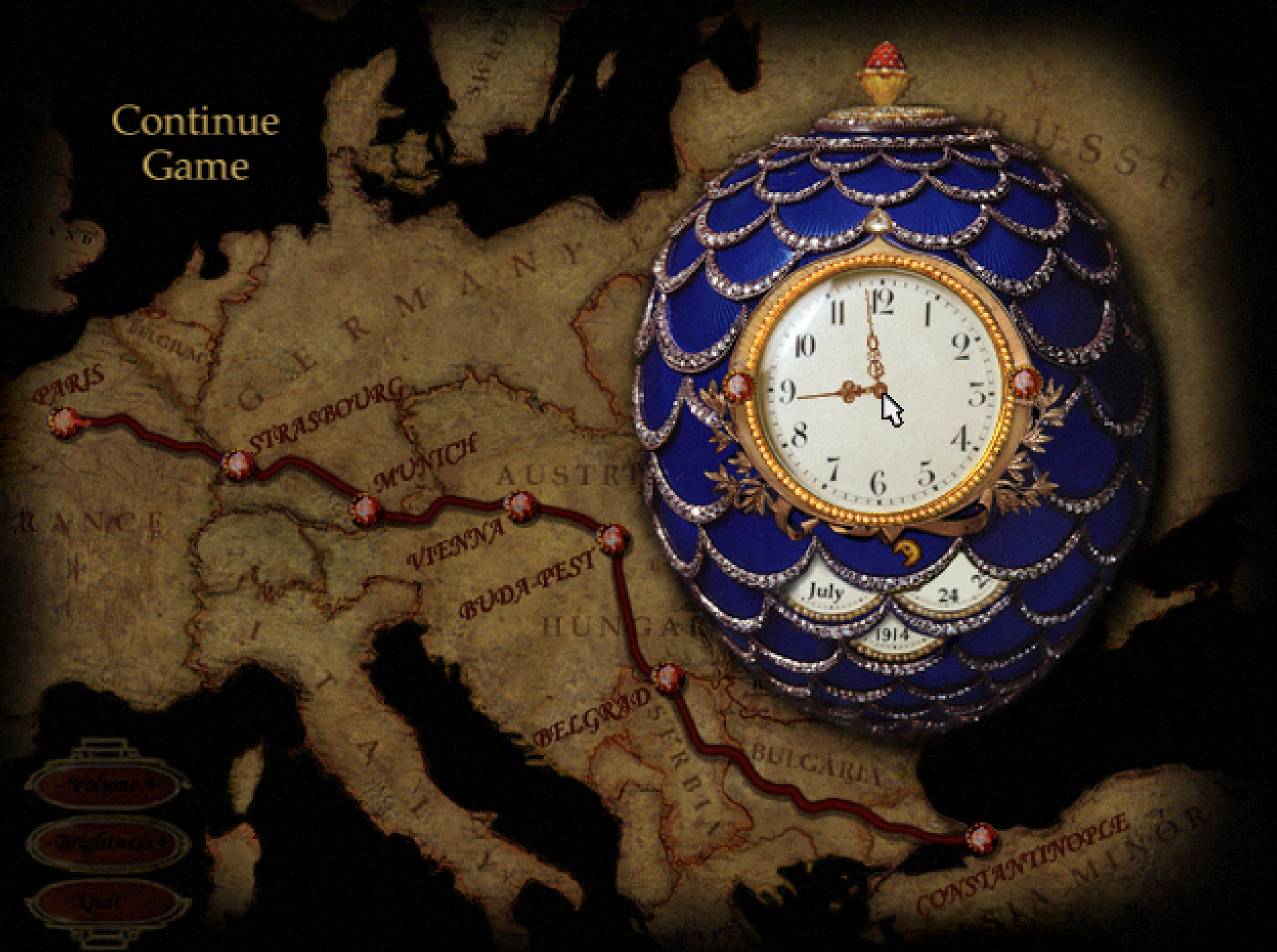
Who are we?[[1]] Why did we have to sneak onto the train? Let's check our inventory—aha, we have a telegram from a friend asking us to join him aboard because he's made a significant discovery and needs help. Our name is apparently Robert Cath. The friend's name is Tyler Morris. We also have a newspaper clipping that indicates someone of our description is wanted by police on suspicion of committing a political murder. Uhoh. Looking up from this, we notice that the clock has continued to advance, at a rate of about six in-game minutes to one real-time minute, and we can hear things going on in the train car to our right. People are moving, talking, and soon enough a conductor is calling out that dinner service is ready... wait a minute—is this a real time game?
Yes, my friend, yes. This is a mystery that unfolds in real time, with around 30 characters going about their business on the train—some benign, some suspicious, some outright villainous—on their own schedule and timetable. They'll have conversations and interactions without the player being present. Robert doesn't figure into many of their plans... unless and until, that is, he bumps into them, starts making moves, and they alter those plans. And they do react to the player—their plans change, timetables shift, and so on, based on what you do and say. There's a complex and satisfying multi-layered mystery unfolding here, grounded in a rich appreciation and recreation of the time, deeply immersive and compelling... and challenging. There are people from all over Europe of various political and social allegiances and backgrounds colliding. The game's script stretched to 800 pages, monumental for the time. In fact—everything about the reactivity and complexity of the game is deeply impressive for 1997. Heck, it's still impressive today. It's still hard to think of a game in this league.
It will be overwhelming at first—a myriad things are happening and there are seemingly endless ways to fail. You might not even see many of the failure states coming until much later! If you miss key aspects of the story, your avatar will fill in with wild conjecture and things that neither you nor he can possibly understand will happen—or you'll find yourself arrested by the police. Fortunately, you can rewind the clock more or less freely. You literally cannot see everything that is going on in a single playthrough—it's hard enough to even collect all of the main storyline beats without some external guidance! Contrary to contemporary games, there is no list of objectives; no todo list that must be ticked off in order to advance (or fail), and so there's no feedback about whether you're on the right, ahem, track.
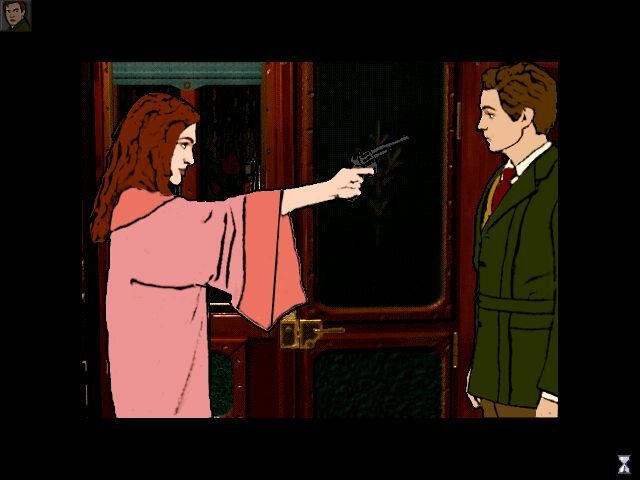
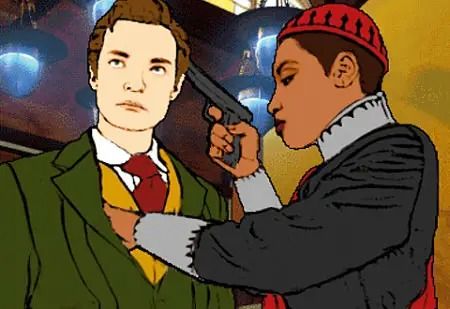
Robert Cath, getting along well with some of the ladies aboard the train
There are roughly sixteen "sections"—key stops or story beats—to the game as it unfolds, and once you get your sea (or more apropos, train) legs under you, you'll start figuring out what you need to do or have done in each section in order to not find yourself caught in the spiderweb. The rhythm of the passengers, conductors, and the odd police raid will start to become second-nature, and you'll start feeling like you can poke around and discover new things. There are usually several ways to go about accomplishing the task of keeping Robert one step ahead of the nefarious dealings on the train. But as I said, there's quite a bit going on, and quite a bit of flexibility around when exactly key things transpire that, much like a tabletop roleplaying game, no two playthroughs will be exactly alike.
I've been beating around the bush talking about complexity and reactive NPCs and multi-path solutions and real time business. Let's take a look at a little example from the game's opening frame—mild spoilers ahead. Rewind to 7:39pm with me! Robert's just hopped aboard the train:
Entering the car, we can locate the compartment we're supposed to share with our friend Tyler in a couple different ways: we can just try all the doors, or we can take advantage of a moment when the conductor gets up to swipe his copy of the passenger list. (We could also decide to not look for Tyler at this time!) Finding our compartment, we enter... and discover Tyler dead on the floor. So we have a problem. There's a corpse, and we're wanted by the police on suspicion of murder. If the body is discovered, we lose. So we can't pull the emergency handle and report this! We can leave Tyler here and go about our investigation, but! One of the passengers was supposed to have dinner with Tyler and will come looking for him after the dinner hour, unless we intercept them and give 'em a bluff. So we rewind and try to hide the body, maybe, say, under the bed. Better than nothing? Well, later that night the conductor will come in and turn the bed down, finding the body. No bueno, we lose. Unless, that is, we overhear when they're doing the bed turn down and decline it. But that locks us into a pattern where we have to be ready to intercept anyone who might search the compartment! So perhaps a better option is to open the window and unceremoniously huck Tyler out into the rural French countryside. Find that body, Monsieur le Conducteur! Wellllll, about that—someone might see this happen, depending on when you toss it... and who's to say what might happen later on if the police hear about a body lying by the side of the tracks—you might have to find a way to dodge hard their questions!
And so it goes—it truly feels like the choices you make, such as when, where, and whom you interact with, what you see or don't see, rebounds throughout the game, altering the NPC's behavior in interesting and believable ways, opening up or constraining your options later, and forcing you to make decisions with incomplete information. Heck, if you want, you can just spend a ton of time in the lounge car, people watching, eavesdropping on their conversations (Robert speaks several languages—but not all of the ones heard on the train—Russian, for instance, is left untranslated), and interacting with the passengers. It really does go the extra mile to immerse you in the ambience of that Last Express.
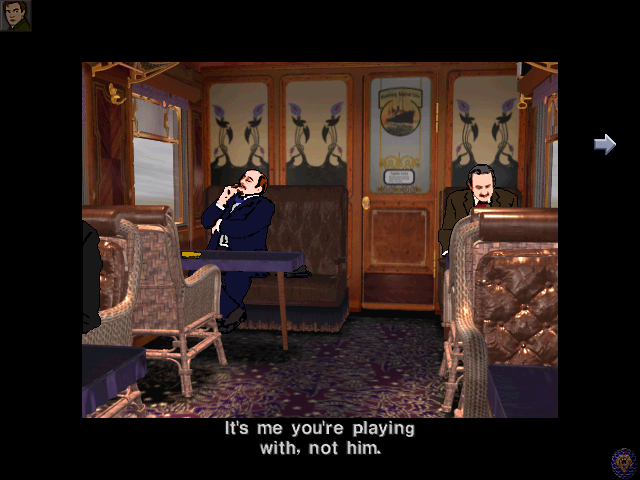
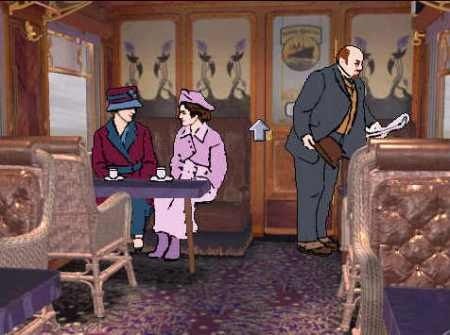
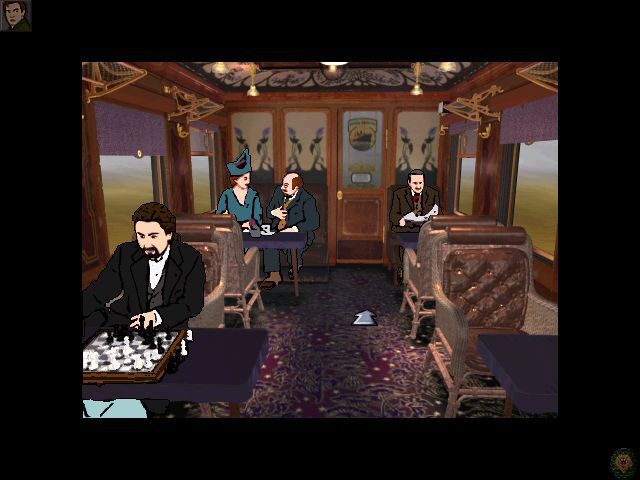
Hanging out in the lounge car, dropping some eaves...
This game is an A+, a masterpiece—one of my all-time favorites. Rich with interaction and story, and the controls aren't too obtuse either.
Playing it
How can you play it? Fortunately, the game works quite well with DosBox or Boxer for the Mac. You can acquire it from GOG.com, and if you have a PC that oughta "just work". On the mac, you'll need to do one extra step: there are three CD-ROM images in a folder entitled "data"—you'll need to mount this folder (not the images, the folder) as a CD-ROM drive labeled "D"; boxer might not do this step for you, so here's an example:
mount D /Users/whereever/you/unzipped/the/game/data -t cdrom
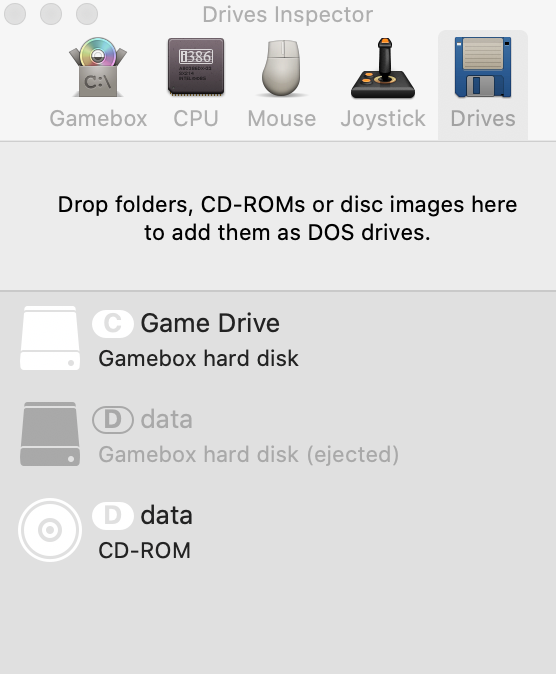
I have seen that there is a port to mobile OSes available, but I have not heard anything about that port. Perhaps it's just fine—I'll admit that I haven't checked; part of the joy for me is getting these old games to run on contemporary platforms, because I'm a nerd like that. If you check and the reviews are good, that might be easier than fiddling around with Boxer :).
[[1]]: Interestingly, the only character it isn't possible to develop a more or less complete picture of is the hero Robert Cath himself, who seems to somewhat pointedly keep his own council about what he tells the player about his past—and while you witness his dreams, he doesn't take the time to try to explain them or contextualize them for the player at all. Curious!
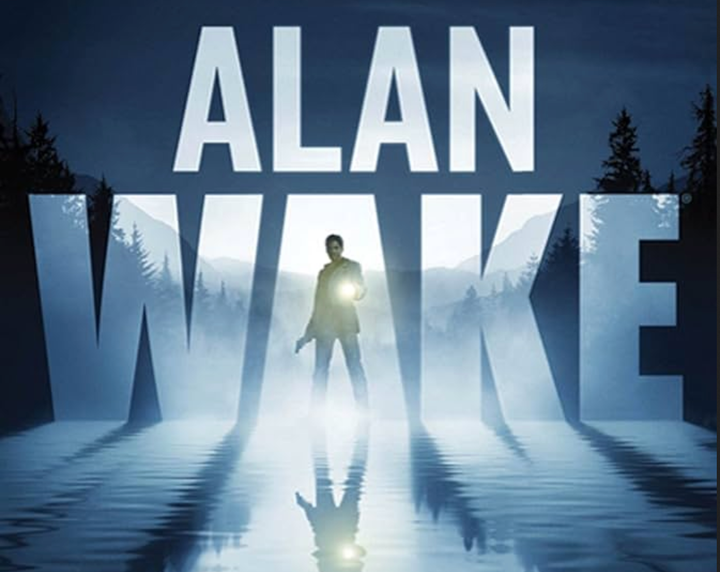


Comments ()